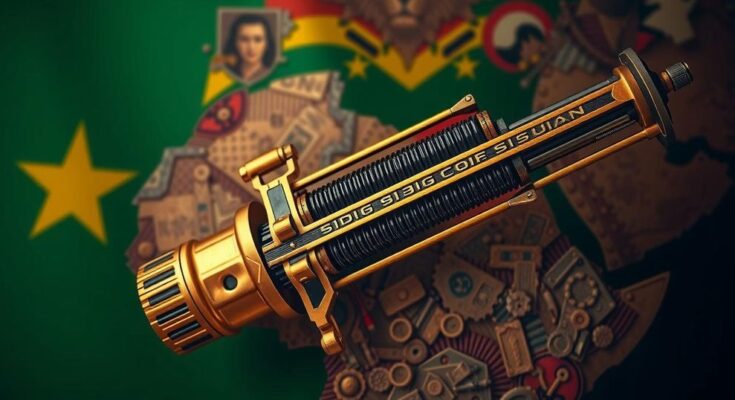Amnesty International reports that the prolonged civil war in Sudan, now in its 19th month, has resulted in 13 million displaced persons and a severe humanitarian crisis marked by famine and disease. Foreign arms supplies from allies of the U.S., including the UAE and France, have been linked to the RSF’s ongoing conduct, complicating international peace efforts and necessitating urgent calls for arms embargoes.
Amnesty International has raised alarms regarding the civil war in Sudan, which has lasted for 19 months, characterizing it as the world’s most severe humanitarian crisis. An estimated 13 million individuals have been displaced, with numerous camps experiencing famine or famine-like conditions. The outbreak of preventable diseases, compounded by the educational system’s collapse, has left about 90% of children in Sudan without schooling. The conflict escalated in April 2023 between the Sudanese Armed Forces and the paramilitary Rapid Support Forces (RSF) following stalled negotiations aimed at incorporating the RSF into a unified military structure. Despite attempts by the United States and other international entities to establish a peace framework, progress remains elusive. Reports indicate that independent researchers branded the casualty figures as vastly unreported, estimating that over 61,000 deaths occurred within Khartoum State alone over the war’s duration. The Yale School of Public Health’s report highlights a looming RSF offensive on El Fasher, a key Darfur city, with significant warnings regarding potential escalated violence and humanitarian repercussions. Concurrently, Amnesty International’s research emphasizes foreign weapons supplies from nations such as the United Arab Emirates (UAE) and France, suggesting that these arms may facilitate ongoing human rights violations and war crimes by the RSF. Amnesty’s findings identified newly supplied UAE armored personnel carriers in use by the RSF, exacerbating the conflict amid existing arms embargo violations. As the humanitarian crisis deepens, calls for an expansion of the Darfur arms embargo have intensified, aimed at curtailing external military support for both combatants, which is seen as a critical factor prolonging the violence. Furthermore, a UN delegation recently arrived in Sudan to investigate war crime allegations, marking a significant international response amidst widespread condemnation of the humanitarian situation.
The civil war in Sudan has resulted from complex power struggles between military factions, primarily involving the Sudanese Armed Forces and the RSF. The conflict was triggered by failed integration talks, leading to intense combat and a remarkable increase in civilian casualties and displacement. Amid international peace-building efforts, humanitarian needs have escalated, revealing the desperate conditions faced by millions. This backdrop sets the stage for discussions surrounding foreign arms supplies and their implications for human rights.
In summary, the ongoing civil war in Sudan has developed into a dire humanitarian crisis, with substantial loss of life and displacement due to armed conflicts facilitated by foreign weapon supplies. The war reflects a catastrophic intertwining of local power struggles and international military involvement, heightening the urgency for a cohesive global response to mitigate suffering and restore peace. A concerted effort to expand arms embargoes and enforce human rights monitors will be vital in addressing the underlying issues exacerbating the conflict.
Original Source: www.cbsnews.com




